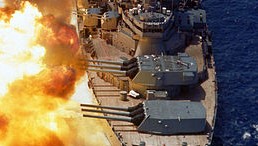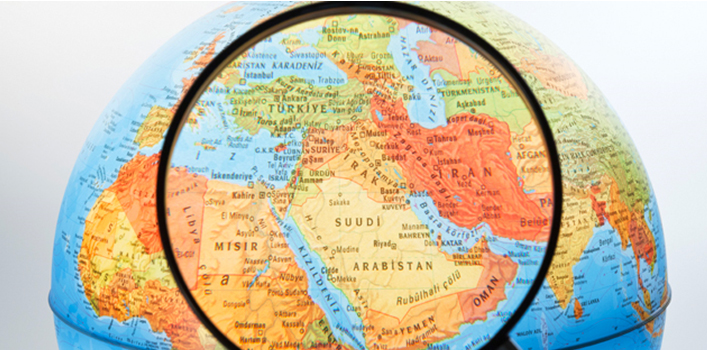At a time when NATO is attempting to increase defence spending to 2% of national GDP per member, a policy that necessarily expands inventories of non-renewable, carbon-intensive equipment, the feasibility of NATO’s pro-climate stance has come under criticism. Much of this skepticism comes from protesters suggesting that humanity (including NATO) is “killing the planet,” by increasing greenhouse gas (GHG) emissions without regard for the environment.
On the one hand, a key partner is pressuring other NATO members to boost their defence expenditures. US President Donald Trump has been at the forefront of calls for all member states to increase military spending to a minimum of 2% of their GDP. Most NATO members, excluding the U.S., currently spend between 0.7% and 1.5% of their GDP towards defence. Given the increasing militarization of Russia and China, and given the position held by the US within NATO, a move to raise defence spending by other members is probably inevitable, even if these countries do so begrudgingly.
On the other hand, environmentalists, such as Greta Thunberg, often accuse NATO of being responsible for a deterioration of the environment. The obvious reason is that increased defence expenditures go toward non-renewables, such as fossil fuels, iron, steel, and activities that contribute towards the destruction of the environment. At the same time, the same environmentalists appear to ignore the fact that NATO is probably the world’s ‘greenest’ alliance.
Most NATO members – other than the US, which has a strong skeptical streak towards environmentalism –voice little opposition to the need to protect and preserve the environment. In fact, most NATO member states are investing in means towards collective reductions of their respective national carbon footprints. This is because they understand the vital importance of the environment to the maintenance of global peace and security.
NATO members such as Montenegro, Iceland, Luxembourg, Slovenia, Lithuania and Latvia have annual carbon emissions of less than 20 million tons. In contrast, Russia emits around 1.7 billion tons and China emits a staggering 9.8 billion tons per annum. After all, pollution, carbon-absorbent green space, and, water resources may well be among the new flash points of global conflict in the future. In the case of the US, admonitions from the Pentagon to take climate change seriously tend to fall on deaf ears in Washington, much to the rest of the world’s dismay.
The ideas mentioned below form a continued list of ideas, which can be agreed upon and implemented collectively by all countries, given that climate change is a global issue that needs global cooperation.
Possible Suggestions:
Tidal / Wave Power Generation:
Tides can be used to generate significant amounts of electricity from fast-moving water. This is the result of a natural process that can be relied upon with certainty, similar to the Pelamis P2 Wave Energy converters being used at the Aguacadoura Wave Farm in Portugal. These projects have had a negligible environmental impact, far below those of other methods of power generation.These generators have the capability of being coupled with magneto-hydrodynamic engines and floating solar panels for increased production output. Such power stations can be set up near naval ports and coastal NATO bases, to keep such facilities running with minimal harm to the environment, significantly reducing their reliance on fossil fuels for energy.
Water Jets:
As evidenced in science experiments, toilet paper is considerably harmful to the environment, as it is constructed from normal paper combined with acrid chemicals such as chlorine. Additionally, paper production is a process which uses a great deal of water. One of the best alternatives to toilet paper is a greater reliance on water for personal hygienic practices. This has steadily been rising in importance due to the COVID-19 pandemic. This was because people hoarded dozens of toilet paper boxes to ride out the lock downs that Canada and the US enacted to curb the spread of the contagion. Water for cleaning has been a mainstay of personal hygiene across the East, particularly in Islamic countries. A similar concept exists in Europe in the form of the bidet. The possibility of introducing these ideas is more in line with the current trend of environmental action. Furthermore, the introduction of water as a personal cleanser would allow for the re-growth of trees, given that water can be produced, collected and retained. For countries dealing with water shortages, water can be produced via humidifiers, and re-engineering atmospheric conditions to synthesize water, including via means of desalination plants which are currently in operation across much of the Middle East.
China has created a unique system nicknamed “the world’s biggest air purifier”. The system was designed by Dutch artist, Daan Rossegarde. The inspiration behind its name is the innovative carbon scrubbing design of its tower. The tower is over 100 meters tall, and is being used in Northern China as a means to tackle the smog problem that is so acute in that region. Researchers note that the tower is able to reduce smog to close to moderate levels. The system is designed around a series of greenhouses that take in atmospheric air and convert it into diamonds. This is done by separating carbon molecules from the polluted air and condensing these molecules to form diamonds. The power source for the tower is a series of solar panels located on the tower. The tower is currently operational in the Dutch city of Rotterdam and the Chinese cities of Beijing, Tianjin and Dalian.
Electric Charging Highways:
Highways typically cause increased pollution by the constant traffic they facilitate. However, the creation of highways that charge cars via overhead electric cables, similar to the charging systems employed by high speed trains, seems to be an effective mitigation of this problem. This is especially the case with electric cars, reducing the need for petrol- and diesel-based fuel systems, or electric charging ports on highways. This innovative highway design has been successfully introduced in Sweden, as of 2018. Petro-Canada is expected to open an electric highway along the Trans-Canada highway. However, this design has yet to provide continuous charging, like in Sweden.
Floating Solar Panels at existing plants:
The placement of floating solar photovoltaic panels attached to both hydroelectric power stations and nuclear power stations serves to boost power generation. This method is widespread in Japan and China, and has been slowly adopted in the US. The Pakistani Ministry of Science, along with analysts familiar with Pakistani infrastructural development, note that such schemes may be capable of producing 25% more power per station due to the added solar panels, and plans are underway to improve power generation at most major dams. Similar designs are being developed in France, with project managers citing significant reductions in GHGs while increasing power generation. The introduction of such panels at naval ports and coastal bases for NATO could result in lower reliance on fossil fuel consumption at those facilities.
Conclusion:
So how do any of the above mentioned innovations help NATO to become greener? Simply put, given the size and general economic sophistication of NATO countries, they could implement these ideas domestically, for both their potential economic advantages and environmental benefits, and extend their application to their respective militaries. Thus, spending 2% of a nation’s GDP on defence while becoming greener would be all the more feasible. The chances are that NATO will continue being the ‘greenest’alliance in the world despite temporary hiccups like the current U.S. administration’s intransigence about accepting the widely-held view that climate change is a real threat.
Featured Image: A bow view of the battleship USS IOWA (BB-61) firing its Mark 7 16-inch/50-caliber guns off the starboard side during a fire power demonstration on August 15th, 1984, by PH1 Jeff Hilton. https://commons.wikimedia.org/wiki/File:BB61_USS_Iowa_BB61_broadside_USN.jpg Public Domain.
Disclaimer: Any views or opinions expressed in articles are solely those of the authors and do not necessarily represent the views of the NATO Association of Canada.




